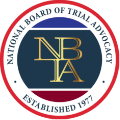
It only takes a moment for an accident to disrupt a peaceful motorcycle ride in West Virginia and turn things dangerous. Because motorcycles offer less protection in a crash than cars, motorcycle riders, and passengers frequently suffer more severe injuries in a crash. If you’ve suffered injuries in a motorcycle accident due to someone else’s negligence, it’s crucial to understand West Virginia’s motorcycle laws so you can protect your rights and secure fair compensation for your injuries.
A West Virginia motorcycle accident attorney at Robinette Legal Group, PLLC, can help you during this challenging time thanks to our deep understanding of West Virginia’s motorcycle laws. Working with us can help you seek the compensation you need to heal and move forward. Contact us today to learn more during a free consultation.
West Virginia Helmet Laws
The West Virginia helmet law is simple: all motorcycle operators and passengers must wear helmets at all times. The West Virginia Department of Transportation notes that all motorcycle helmets must meet federal safety standards. When purchasing a helmet, look for a sticker on the outside certifying that it meets these safety criteria.
While West Virginia law says motorcycle riders and passengers must always wear a helmet, failing to do so does not bar you from recovering compensation for injuries sustained in an accident. Whether you were wearing a helmet when a crash occurred has nothing to do with who caused the accident and your right to compensation. However, insurance companies may argue that not wearing a helmet may have caused more severe injuries in an attempt to deny or reduce your claim. If an insurer tries this tactic with you, talk to a West Virginia personal injury attorney immediately. They can help you fight back and help you pursue fair compensation for your losses from the crash.
Obtaining a Motorcycle License in West Virginia
West Virginia requires all motorcycle riders to have a motorcycle endorsement (F) on their driver’s license or a Class F motorcycle-only driver’s license. Here’s a closer look at the process of obtaining a WV motorcycle permit.
Step 1: Obtain Your Learner’s Permit
The first step to obtaining a West Virginia motorcycle license is to visit your local DMV office for a knowledge test. To prepare, review the West Virginia Motorcycle Operator Manual. Once you pass the test, you’ll receive your learner’s permit, which lets you ride during daylight hours without a passenger. This permit lasts for 180 days and can’t be renewed. If it expires, you’ll need to retake the knowledge test.
Step 2: Schedule Your Road Skills Test
After holding your learner’s permit for at least seven days, you can take the on-cycle skills test. You must make an appointment at the DMV for this practical exam. Passing this test is crucial for getting that motorcycle endorsement added to your driver’s license or obtaining your motorcycle-only license.
Step 3: Consider a Motorcycle Safety Course
For those looking to bypass the on-cycle skills test, West Virginia offers an alternative: you can enroll in either a Basic or Experienced Rider Course through the Motorcycle Safety Program. Completing one of these courses waives the skills test requirement while arming you with valuable riding techniques and safety practices.
Special Note for Riders Under 18
If you’re an aspiring motorcyclist under 18, there’s an additional step to getting a motorcycle license. You must complete Level II of the Graduated Driver Licensing (GDL) program before you can receive your motorcycle instruction permit. This involves passing a basic knowledge and vision test, obtaining written consent from your parent or guardian to get your Level I instructional permit, holding that permit for six months without any violations, and having at least 50 hours of practice driving (including 10 hours of night driving).
By following these steps, you’re on your way to earning your motorcycle license in WV.
WV Motorcycle License Grandfather Clause
In 2009, West Virginia lawmakers proposed changes to the state’s motorcycle laws that would have created a so-called “grandfather clause” regarding motorcycle helmets. This WV motorcycle license grandfather clause would have allowed licensed riders age 21 or older as of June 30, 2009, to be exempt from the helmet requirement if they met certain conditions. However, the bill did not pass the legislature, so no grandfather clause exists. All motorcycle riders in West Virginia must wear a helmet without exception.
Motorcycle Insurance Laws
The West Virginia Department of Transportation says all registered vehicles in the state, including motorcycles, must have the following minimum insurance coverage:
- $25,000 in injury liability coverage for one person injured in an accident
- $50,000 in injury liability coverage for multiple people injured in the same accident
- $25,000 in property damage per accident
This is the minimum coverage all motorcyclists must carry, though you can purchase additional coverage.
Motorcycle Equipment Requirements
West Virginia law outlines precise requirements for motorcycle safety equipment to keep every rider protected in the event of an accident. Here’s a breakdown of what you need in addition to an approved helmet:
- Eye Protection – West Virginia law requires riders and passengers to wear shatter-resistant eyeglasses, goggles, or face shields. These eye protection devices must meet the specifications of the American National Standards Institute (ANSI). If your motorcycle has a windshield or windscreen, it must also be made of safety shatter-resistant material in compliance with DOT and ANSI standards.
- Handlebar Height – Want to customize your ride? Just remember that the handlebars or grips can’t be more than 15 inches higher than the uppermost part of the operator’s seat. This rule ensures the motorcycle remains controllable and safe to operate.
- Seating and Footrests – Riders must sit facing forward in a permanent seat. If carrying passengers, the motorcycle must have adequate seating and footrests. This means the bike should either have a seat designed for two people or a sidecar with safety belts, each equipped with appropriate footrests for passenger safety.
- Rearview Mirror – Every motorcycle must have a rearview mirror mounted on the handlebars or fairings. This mirror must provide a clear view of the road and traffic conditions behind the motorcycle for at least 200 feet, ensuring the rider can see and react to traffic conditions.
West Virginia Laws for Motorcycle Passengers
In West Virginia, motorcycle passengers must sit behind the operator on a permanent seat designed for two people or on another seat firmly attached to the motorcycle behind the operator’s seat. This additional seat must also have footrests specifically designed for the passenger’s use. No one is allowed to ride side-saddle—passengers must face forward and ride in a seated position. If the motorcycle includes a factory-produced sidecar, it should have safety belts, and each passenger must have their seat within the sidecar.
West Virginia Fault Laws
West Virginia is one of many states that uses a “comparative negligence” system to determine fault for an accident. State law says motorcycle crash victims can recover compensation after motorcycle accidents as long as their degree of fault is less than that of everyone else involved in the accident. In other words, as long as your degree of fault is 50 percent or less, you can recover compensation even if you played a role in causing the accident. However, if you contributed to the crash, your compensation will be reduced by your portion of fault. For example, if you were 30 percent at fault for the accident, a $100,000 award would be reduced by $30,000 in a motorcycle accident case.
What To Do After a Motorcycle Accident
After a West Virginia motorcycle accident, taking the right steps can significantly affect your ability to protect your rights and potentially seek compensation in a personal injury claim. Here’s what you should do once you’ve left the crash scene and received immediate medical attention:
- Report the Accident – Make sure to officially report the collision to the police. Obtain a copy of the accident report, as it will be vital evidence for your case.
- Keep Up with Medical Treatment – Attend all doctor appointments and follow your medical team’s recommendations to the letter. This will aid in your physical recovery and demonstrate the severity of your injuries and the necessity of the treatments you receive.
- Document Everything – Keep detailed records of your injuries, treatments, and any medical advice you receive. This documentation is crucial for any legal action or insurance claims involving motorcycle accidents.
- Gather Evidence – Collect photos and videos from the accident scene, your injuries, and damage to your motorcycle. Also, write down the contact information of any eyewitnesses.
- Notify Your Insurance – Inform your insurance company about the accident. However, be cautious with the details you share until you speak with a lawyer.
- Consult a Lawyer – Contact a lawyer with experience handling motorcycle accident cases in West Virginia. They can guide you through the legal process, help you understand your rights, and work on pursuing fair compensation for your injuries.
Contact Our West Virginia Motorcycle Accident Lawyers for Help
West Virginia’s motorcycle laws are complicated, but an experienced motorcycle accident attorney can handle the details of your case while you receive treatment for your injuries. Robinette Legal Group, PLLC, is ready to take your case and fight the insurance companies on your behalf. Call us today or complete our contact form for a free consultation with our experienced motorcycle accident lawyers.
Our Awards and Certifications











Practice Areas
- Personal Injury Overview
- Bicycle Accidents
- Brain Injuries
- West Virginia Burn Injury Attorney
- Car Accidents
- Commercial Delivery Truck Collisions
- Construction Site Injuries
- Dog Bite Injuries
- Drunk Driver (DUI) Accidents
- Gas Explosion Injuries
- Insurance Claim Disputes
- Mining Accident Injuries
- Motorcycle Accidents
- Pedestrian Accidents
- Medical Malpractice
- Rear-End Collisions
- Scaffold & Ladder Fall Injuries
- Slip And Fall Accidents
- Spinal Cord Injuries
- Truck Accidents
- Uninsured Motorists
- Work Accidents
- Wrongful Death



